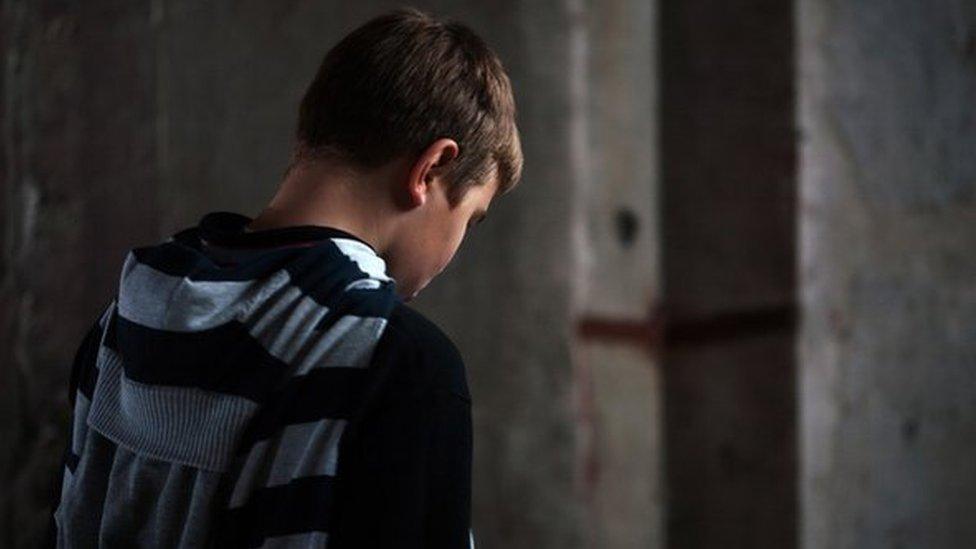'Struggling' emergency service workers to get support
- Published
The Blue Light Programme aims to reach 20,000 workers
About 90% of emergency workers have experienced stress while 25% have contemplated suicide, a mental health charity has said.
Mind Cymru is launching a scheme aimed at helping 20,000 emergency and search and rescue service workers.
The Blue Light Programme will offer training to help staff deal with situations, and for managers to help them.
Despite the stress they face, workers are less likely to take sick days.
Its survey of staff found fewer than 40% had taken time off because of poor mental health.
This compared to 60% of the general workforce in research by the Chartered Institute of Personnel Development.

Case study
Det Sgt Georgina Lloyd-Pugh left her job at South Wales Police 13 months ago when she had a breakdown.
She was "flying at work" but suffered "significant events in her personal life" including failed IVF treatment and her marriage breaking down.
"I have a fear of failure and one day I was sat in my office and just cried," she said.
"I thought I need help and can't go on like this."
Ms Lloyd-Pugh said the emergency services come across vulnerable people day in and day out, and as police officers they are "expected to be able to deal with it".
"But it's difficult and it can get to you. You empathise with people and want to do your best for them, but sometimes you can't."
She said she often took her work home with her and questioned whether she had dealt with situations properly and could she have done better.
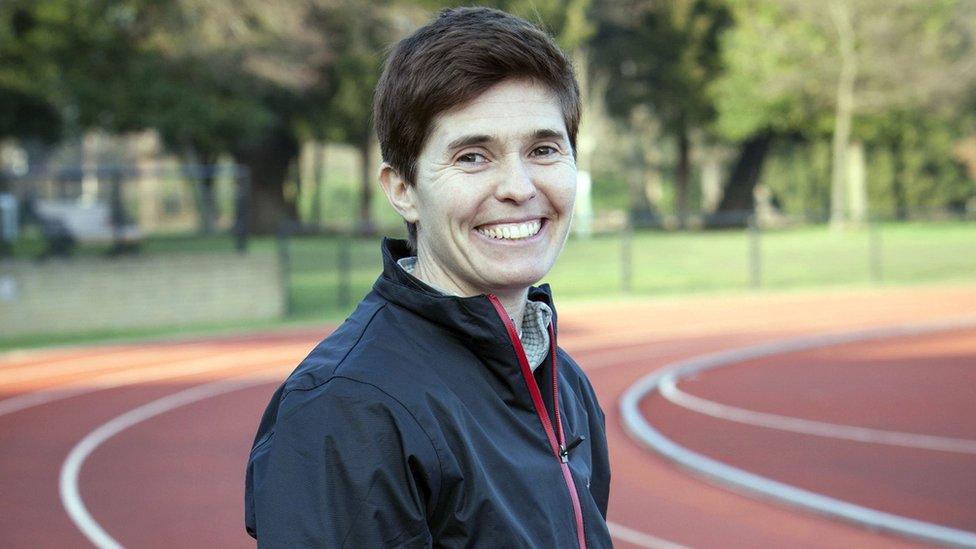
Ms Lloyd-Pugh said it was difficult to speak out and tell work that she was suffering.
"As soon as I did the support was there. South Wales Police has been absolutely brilliant."
She self-referred herself to counselling and took mindfulness courses and "eventually things were put in place".
She also took part in the BBC One's Mind over Marathon documentary, which saw a group of unlikely runners tackle their mental health issues and the London Marathon.
Ms Lloyd-Pugh said the programme, along with her family and colleagues, helped save her life. She is now looking to return to work in May.

Director of Mind Cymru Sara Moseley said: "Blue light workers do an extremely challenging job day in, day out, frequently encountering difficult and traumatic situations.
"Not only are many of our blue light personnel struggling with their mental health, but they're less likely to seek support or have time off sick than the general workforce."
The scheme will look at five areas including tackling stigma and discrimination by employers, building mental health resilience among staff and improving support at home and work.
South Wales Police's Assistant Chief Constable Jonathan Drake said: "Breaking the silence sends a powerful message to demonstrate that mental health issues can be discussed openly."
The Welsh Ambulance Service's Claire Vaughan also said it is important to support those who "save lives day in, day out and support people at their most vulnerable".
- Published13 April 2017
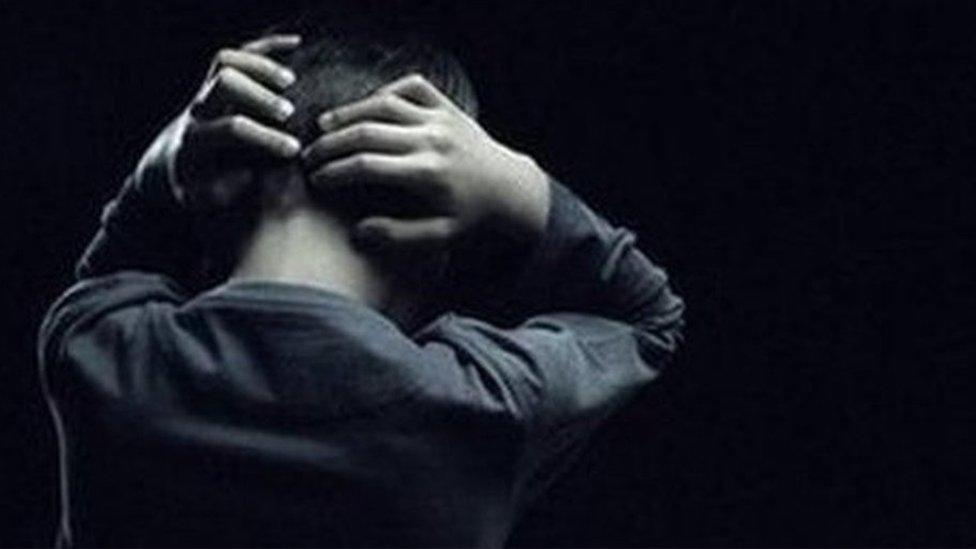
- Published17 April 2017

- Published20 April 2017
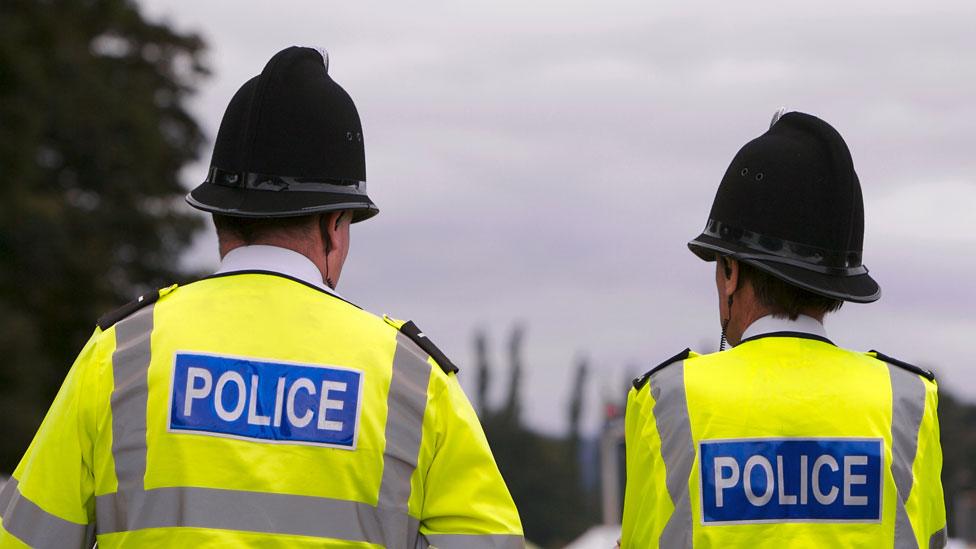
- Published13 April 2017
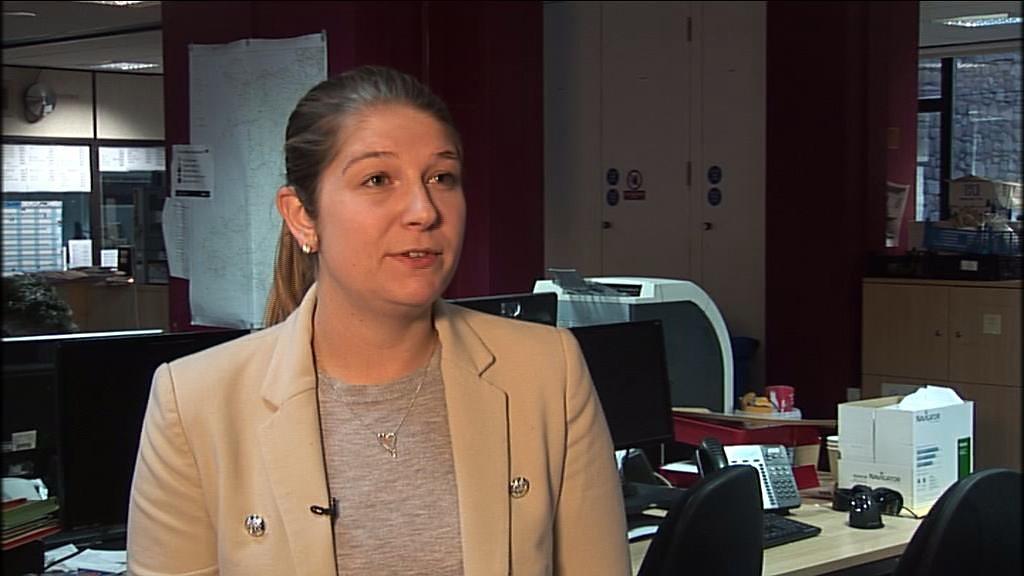
- Published10 April 2017
